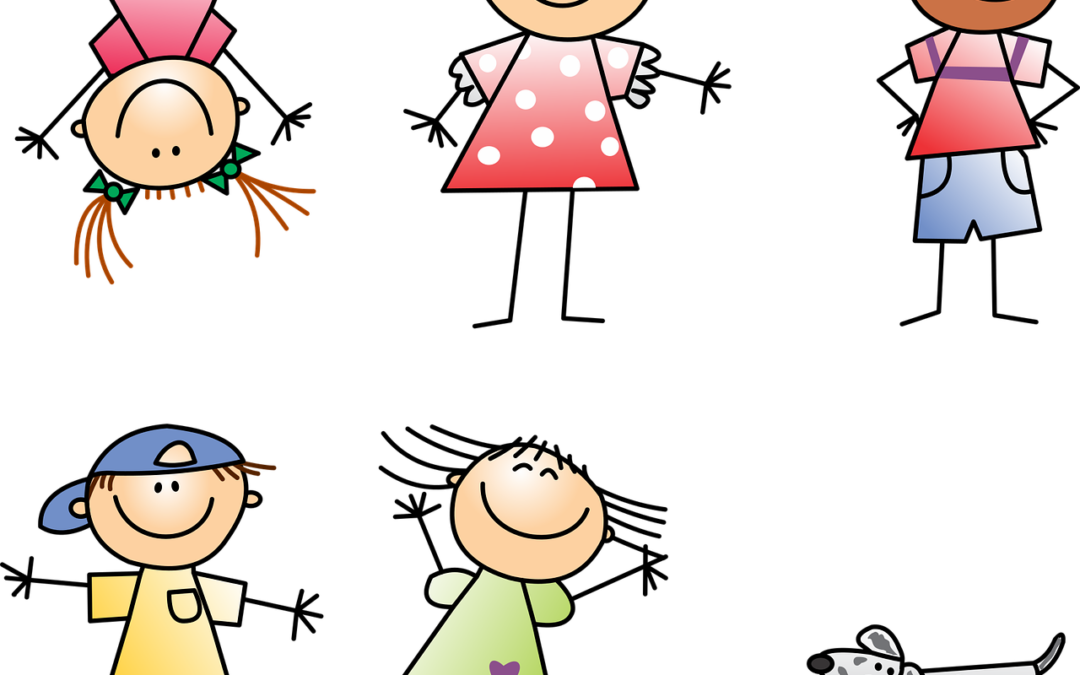Mine was a family of four girls, each born 2 years apart, give or take a few months here and there. I was the oldest. By the time my youngest sister was born, both parents were raging, non-functional alcoholics. That youngest sister grew up to tell me she considered me her parent. I was six when she was born. Some parent. So, when I read about large families, I come from a unique perspective; one that doesn’t offer much in the way of successfully navigating a slew of kids, but I do have some experience here.
My best friend in 5th through 7th grades came from a larger family, too: five kids ranging from 6 to 18 when I first met her. Her Dad was an accountant and Mom, a teacher. She had twin sisters about 8 years older than she was. I remember her mom stretching their food budget by blending nonfat dry milk with whole milk. They’d go through about a gallon at every meal. I know so much because by this time, the whole church knew how things in my family were going and I guess the Steltzers took pity on me and had me spend weekends with them for years. I look back on this now and realize I owe them a lot for that kindness. Now, and then, I know that this large family got it right and I am so grateful for my time with them.
In their honor, I have found a few sources (Good Housekeeping, the New York Times, TV surveys) exploring strategies employed by successful large families, I offer these ideas for you:
- Have older children do their own laundry.
- Live close to work, school, church, shopping.
- Divert the bickering by having kids complete a routine job together.
- Schedule date night after the kids are in bed to minimize responsibilities of the sitter.
- Use charts profusely to stay organized.
- Routines really help everyone get what they need.
- Color code everything.
- Accept any offer of help.
- Decline many requests for help like cooking for a school bake sale.
- Fill yourself up! Self-care is crucial in whatever form you need.
- Talk to other parents of large families.
- Get outside no matter the weather.
- Streamline activity schedules/extracurricular activities.
- Label clothing.
- Keep things kids need where they can reach things independently.
- Sort laundry by function, not color.
- Schedule quiet time.
- Schedule 1:1 time (kids get 1:1 time based on the number of kids in the family, 1 x/month or every 6 weeks).
- Use a slow cooker to batch cook for the week.
- Use a timer to get things tidy quickly when all pitch in to put shoes away, empty trash, clean surfaces.
- Use storage system to move items from chaos to the responsibility of the child to put away.
- Laugh
My daughter has three children. This list reflects many of the habits she has installed into her working mom life. All sage advice. I hope some of you find the above list helpful. I suspect some of you could even add to it.
Since my audience for these columns are families of children with chronic trauma histories, I share this list with a large dose of caution based on conversations I have regularly with the people parenting these children. Much of the independence and autonomy spelled out in the above list does not consider the unmet dependency needs of these children, their unique and oh, so confusing needs for comfort or their unique (and challenging) way of expressing frustration, fear, or anger. It is so hard to grasp that a 5-year-old might not know how to use a fork, or a 13-year-old to brush their teeth (much less do their own laundry) but these are the children you love. The idea that these kids could wait 6 weeks for 1:1 time with you ignores the time you’ll need to spend helping them calm themselves when they are overstimulated, terrified, or simply confused. Then there are all the specialist appointments, team meetings, supervised visits, and IEP meetings…
I’m not against large families. I just want to be respectful about how much time and energy, both physical and emotional, it takes to help a child from trauma heal. I also want to thank the folks at AZAFAP family camp for speaking up about life with a large family of children with trauma histories and how they wish someone had told them sooner about the kids’ unique needs.
NEWS
- Check out the AZAFAP Event Calendar at https://azafap.gnosishosting.net/Events/Calendar.
- Our Friday night Happy Hour and Tuesday afternoon Coffee Chat continue. Some find Nancy or me and a single other participant; others find a conversation among 4 to 12 people. The topics range from the silly to what hobbies have us in their grip to what life has thrown in our path. If you ever find yourself wanting a bit of grown-up conversation, consider joining us (check your email for the unchanging link).
- Parent Mentor Partners: AZAFAP has trained volunteer parents as mentors who are ready to help support foster, kinship, and adoptive parents through one-to-one conversations. Interested? Fill out the form at https://www.azafap.org/family-support-services/
- The Caring for Caregivers project provides counseling sessions for those who do not have insurance to cover counseling services. Find the information and link at https://www.azafap.org/family-support-services/
- I encourage you to check out what Dr. Bruce Perry has to offer. Find his thoughts at https://youtu.be/uOsgDkeH52o?t=3 and at https://www.neurosequential.com.
Thanks for listening. Maintain yourself so you can be there reliably for others.
Cathy (cathyt@azafap.org)


Recent Comments